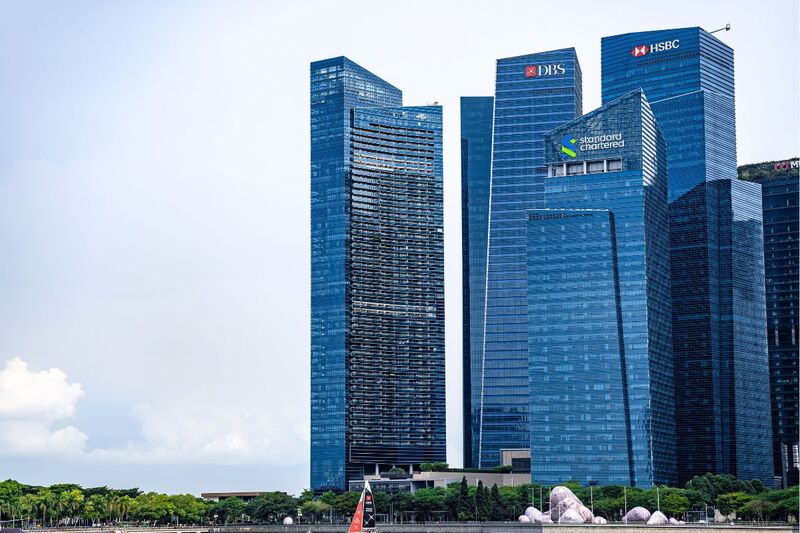Singapore’s Most Competitive Co-workers: How to Work With Them (and Win)
In every Singapore office, there's at least one: the über-competitive co-worker who turns every project into a race, every meeting into a power play, and every KPI into a battleground. Whether they're gunning for the next promotion or just can't help but treat work like the Olympics, competitive colleagues are part of modern corporate life — especially in a high-performance culture like Singapore’s.
But here's the twist: competitive co-workers aren't necessarily a threat. In fact, if you know how to work with them — and not against them — they could become your strongest allies, or at the very least, powerful catalysts for your personal growth.
At Reeracoen, one of the leading recruitment firms in Singapore and APAC, we work closely with companies and professionals across industries to decode team dynamics. And competitive behaviour is one of the most misunderstood.
Let’s break it down — and turn tension into traction.
Why Are Singaporeans So Competitive at Work?
Singapore ranks consistently high in global work ethic and productivity indexes. A 2023 LinkedIn survey showed that 61% of professionals in Singapore identified themselves as "achievement-driven," higher than the APAC average of 52%.
There are a few reasons:
- Meritocracy is deeply ingrained in education and employment systems.
- The cost of living is high, incentivising career progression.
- There’s a strong status consciousness, especially in sectors like finance, tech, and law.
- Limited leadership roles in lean companies create a “glass ceiling effect,” increasing competition at the top.
But being competitive isn't always toxic — until it is.
🎯5 Types of Competitive Colleagues (and How to Handle Them)
1. The KPI Sniper
Always chasing the top sales, best client ratings, or highest leads. They might swoop in last minute to “save” the project and steal credit.
How to win with them:
- Keep clear documentation of your contributions.
- Collaborate early — make them feel part of the process, not a competitor.
2. The Praise Seeker
They need recognition — and lots of it. They dominate meetings, forward compliments to their boss, and subtly downplay others.
How to win with them:
- Compliment them first. This disarms their insecurity and builds trust.
- Find common wins you can share publicly to elevate both reputations.
3. The Shadow Boxer
They don't show their competitive nature outright but undercut subtly — withholding information or questioning your decisions in front of management.
How to win with them:
- Be assertive, not aggressive. Use facts and calm professionalism to neutralise passive-aggressive behaviour.
- Loop in team leads or project sponsors to ensure clarity.
4. The “Everything’s a Competition” Colleague
Even birthday cakes become a point of contention. They treat everything like a scoreboard.
How to win with them:
- Use humour and lightness to de-escalate intensity.
- Focus on team goals — gently steer their attention from “me vs you” to “us vs deadline”.
5. The Overachiever
Not malicious, just hyper-ambitious. They take on more, do more, and rise quickly — often leaving others feeling “less than”.
How to win with them:
- Ask for mentorship or to collaborate — it shifts the energy from competition to cooperation.
- Use them as a benchmark, not a threat.
🤝 When Competition Turns Toxic
A Reeracoen survey of Singapore professionals (2024) found that:
- 42% say internal competition is motivating.
- 26% say it leads to workplace anxiety.
- 18% left their job because of toxic team dynamics.
Healthy competition pushes performance. Unhealthy competition breeds burnout.
If a colleague consistently:
- Takes credit
- Sabotages others
- Withholds resources
- Gaslights team members
...it’s no longer competition — it’s toxicity. Escalate professionally via HR or management, and document everything.
💡 Turning Competitive Culture Into Career Growth
Here’s the secret: If you can thrive in a competitive workplace, you’ll stand out anywhere.
Tips:
- Learn how to self-advocate without arrogance.
- Build strong cross-department allies — not just your team.
- Celebrate others’ wins publicly and often — this builds reputation capital.
- Invest in soft skills like emotional intelligence, negotiation, and conflict resolution.
Want to go further? Take on roles that build your influence, not just output — mentoring, cross-functional projects, or CSR initiatives.
🙋 FAQ: Competitive Co-workers in Singapore
Q1: Is competition always bad?
A: No. Healthy competition can boost innovation, performance, and learning. It becomes harmful when it undermines trust, collaboration, or well-being.
Q2: Should I try to “outdo” a competitive colleague?
A: Focus on your own growth and values. Trying to “beat” someone can lead to stress or poor judgment.
Q3: How do I avoid being seen as competitive or arrogant myself?
A: Be generous with praise, share credit, and listen more. Humility is rare — and powerful.
Q4: What if my boss encourages competition?
A: Clarify performance metrics and advocate for team-based incentives, not just individual ones. Suggest collaboration KPIs.
Q5: Can I request to switch teams if my co-worker is toxic?
A: Yes — but try professional resolution first. Seek feedback, HR mediation, or coaching before making the move.
Ready to Work Smarter — With Anyone?
Whether you’re managing workplace dynamics or searching for your next high-performing team, Reeracoen Singapore is here to help.
👉 Explore career opportunities with Reeracoen
👉 Hire resilient, collaborative talent for your company
Disclaimer:
The information provided in our blog articles is intended for general informational purposes only. It is not a substitute for professional advice and should not be relied upon as such.
While we strive to provide accurate and up-to-date information, the ever-evolving nature of certain topics may result in content becoming outdated or inaccurate over time. Therefore, we recommend consulting with qualified professionals or experts in the respective fields for specific advice or guidance. Any actions taken based on the information contained in our blog articles are solely at the reader's discretion and risk. We do not assume any responsibility or liability for any loss, damage, or adverse consequences incurred as a result of such actions.
We may occasionally provide links to external websites or resources for further information or reference. These links are provided for convenience and do not imply endorsement or responsibility for the content or accuracy of these external sources. Our blog articles may also include personal opinions, views, or interpretations of the authors, which do not necessarily reflect the views of our organisation as a whole. We encourage readers to verify the accuracy and relevance of information presented in our blog articles and to seek professional advice when needed. Your use of this website and its content constitutes acceptance of this disclaimer.
🔗 Reference Links






